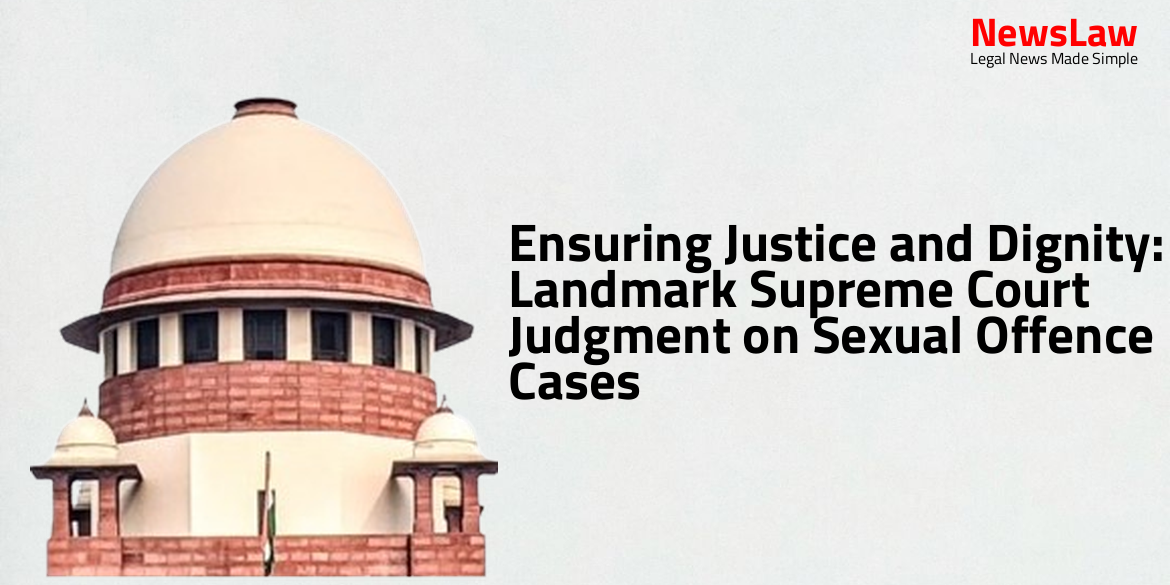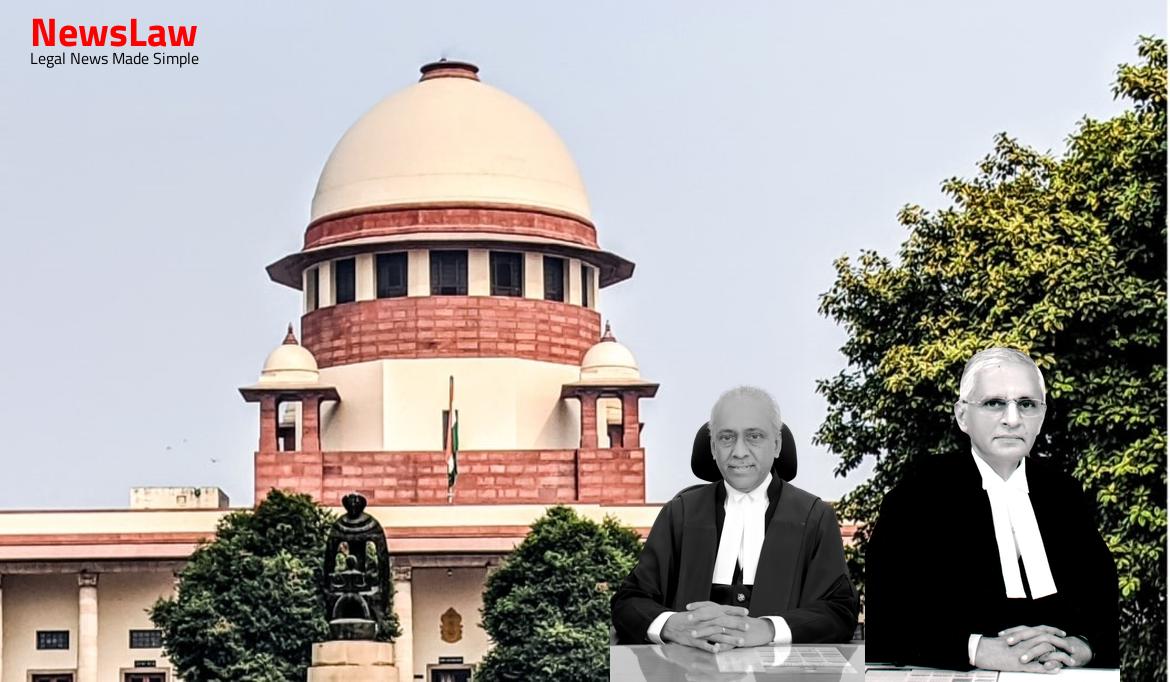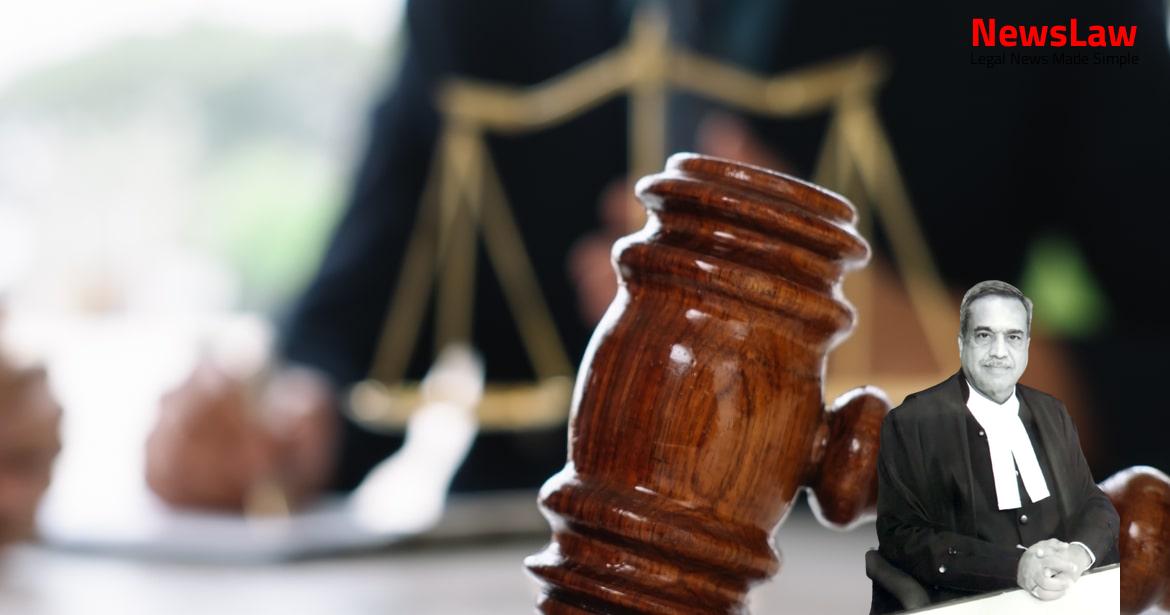In a significant ruling by the Supreme Court of India, a landmark judgment has been delivered to ensure justice and dignity in cases of sexual offences. The judgment lays down guidelines to protect the rights of survivors, eliminate degrading practices, and expedite the trial process. This marks a crucial step towards upholding human rights and gender equality in the legal system.
Issue
- Medical experts no longer provide opinions on the sexual history of the victim.
- Some states have issued directions in this regard.
- No specific policy on victim/witness protection in cases of rape has been mentioned.
Analysis
- Police is dutybound to register the offence based on information given by victim/informant in case of cognizable offence as per Lalita Kumari v. Government of U.P. (2014) 2 SCC 1
- Trial courts should follow practice guidelines in criminal trials including preparation of a detailed case-calendar, specifying dates for examination-in-chief and cross-examination of witnesses, and ensuring convenience of both prosecution and defence
- State is obligated to provide services to survivors of sexual violence and ensure their safety without violating their privacy
- Per-Vaginum examination (Two-finger test) is violative of the dignity of women as per Lillu alias Rajesh and Anr. v. State of Haryana (2013) 14 SCC 643
- Rape survivors are entitled to legal recourse that does not re-traumatize them, respect their physical and mental integrity and dignity, and ensure medical procedures with their consent and without cruel, inhuman, or degrading treatment
- Status report is requested regarding the procedures and protocols for taking samples for forensic DNA and odontology by medical practitioners
- Requirement for equipped forensic laboratories at every Division Level for regional forensic analysis
- Need for sufficient government scientific experts for forensic analysis as per Section 293 of Cr.P.C.
- Ensuring completion of investigation in cases of sexual offences within two months as per Section 173(1A) of Cr.P.C.
- Availability of women police officers for investigating rape and other sexual offences
- Recording statements of victims by the Court as per Sub-Section (5A) of Section 164, Cr.P.C.
- Elimination of ‘Two-finger test’ and issuance of directions by states regarding the same
- Guidance for timely examination and preparation of medical reports of the accused under Section 53A of Cr.P.C.
- Providing Medico Forensic Kits at all Primary Health Centers and Community Health Centers
- Ensuring Medical Opinions in compliance with Sections 164A and 375 of Cr.P.C. and relevant guidelines
- Registration of cases under Section 166A of IPC against public servants
- Scheme for medical treatment and free medical services to victims under Section 357C of Cr.P.C.
- Issuing advisories or guidelines to hospitals and medical centers, exemplary actions under Section 166B of IPC
- Need for special waiting rooms for rape case victims and measures to prevent confrontation with accused during trial
- Ensuring compensation to victims through District Legal Service Authority, compliance with the 2018 Scheme for victim rehabilitation
- Implementation status of the Nirbhaya Fund for women safety initiatives
- Utilization of the Nirbhaya Fund by Central or State Governments for envisioned purposes
- Appointment of Amicus Curiae for assessing the criminal justice system in sexual offence cases
- Requirement for interpreter or special educator in courts for statement recording, videography facilities, and the availability of lady medical practitioners in critical locations
- Preparation of case calendars as per Section 309 of Cr.P.C., guidelines for witness attendance and trial completion, establishment of special trial courts for rape cases
- Need for witness protection during investigation and trial, importance of DNA sampling for forensic examination
- Failure of a public servant to record information of offences as prescribed under Section 154 of the Cr.P.C. is a punishable offence under Section 166A.
- Inquiry or trial of cases relating to rape should ideally be completed within two months from the date of filing of the charge-sheet.
- Key points to consider in the status report regarding trial of cases relating to rape:
- 1. Are trials being conducted by Courts presided over by a woman?
- 2. Availability of sufficient number of lady judges to preside over Courts dealing with sexual offences and rape.
- 3. Whether courts conducting trials relating to rape have requisite infrastructure and are conducting in-camera trials.
- 4. Whether trials relating to cases of rape are being completed within two months from the date of filing of the charge-sheet, and reasons for any delays.
- The Act highlights that the victim’s character or previous sexual experience shall not be relevant on the issue of consent.
- Special provisions for recording first information in cases where the victim is mentally or physically disabled.
- Key points to consider in the status report regarding recording of information of the victim:
- 1. Availability of woman police officer or woman officer at all Police Stations to record victim information.
- 2. Procedure for recording FIR without a crime number in cases where the offence location is beyond the Police Station’s jurisdiction.
- 3. Provisions for recording first information by a woman police officer or woman officer at the victim’s residence in case of disability.
- 4. Availability of details of special educators or interpreters for disabled victims at District Police Units.
Also Read: CRPF Act: Validity of Rule 27 for Compulsory Retirement – Case of Head Constable vs. CRPF
Case Number: SMW(Crl) No.-000004 / 2019



